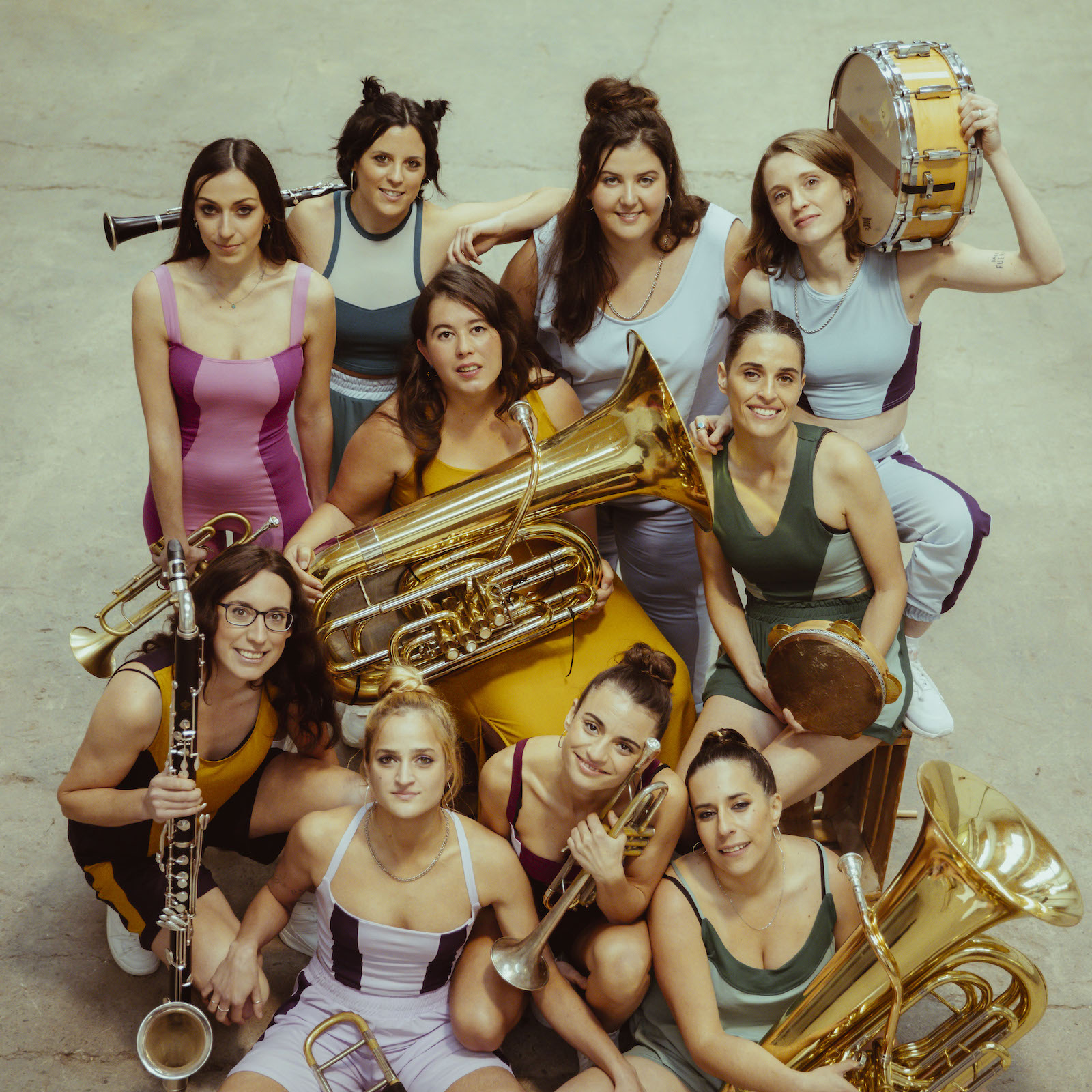 Today in class, we listened to a recording of five of Maurer's 12 Pieces by the New York Brass Quintet from 1985. It is from their Mentor Music Record Brass Pioneers, Volume 2 "Romantic Age Brass". On the recording cover it mentions "Historic sound document of live performances (1980-1984). The personnel of the New York Brass Quintet during this time was: Robert Nagle and Allan Dean on trumpet, Paul Ingraham on horn, John Swallow on trombone and Thompson "Toby" Hanks on tuba. Several of us remarked on the graceful and pleasant style of the piece and the NYBQ's interpretation, and that it was especially impressive since it was a live recording.
Today in class, we listened to a recording of five of Maurer's 12 Pieces by the New York Brass Quintet from 1985. It is from their Mentor Music Record Brass Pioneers, Volume 2 "Romantic Age Brass". On the recording cover it mentions "Historic sound document of live performances (1980-1984). The personnel of the New York Brass Quintet during this time was: Robert Nagle and Allan Dean on trumpet, Paul Ingraham on horn, John Swallow on trombone and Thompson "Toby" Hanks on tuba. Several of us remarked on the graceful and pleasant style of the piece and the NYBQ's interpretation, and that it was especially impressive since it was a live recording.From Wikipedia:
We also listened to Laudes by Jan Bach. It is considered one of the most important works for brass quintet in the 20th century.Ludwig Wilhelm Maurer (February 2, 1789 – October 13–25, 1878) was a German composer, conductor, and violinist born in Potsdam. In 1802, he debuted in Berlin with his first major violin performance. After a brief period of studying French violin style in Mitau (Latvia), Maurer went to Russia at age 17 in 1806, where he would stay for most of his life. For this reason, Maurer is considered both a German and a Russian composer.
Ludwig Maurer
Upon his arrival in St. Petersburg, Maurer performed extensively until the French violinist and composer Pierre Baillot aided Maurer in becoming the conductor of the Count Vsevolozhsky's orchestra in Moscow. Maurer conducted the orchestra until 1817 when he toured as a performer in Germany and Paris. In 1819 Maurer began using Hanover as a base for directing and conducting, while touring and composing. During this period Maurer also maintained a composing partnership with Aleksey Nikolayevich Verstovsky in the opera-vaudeville form. Toward the end of this period in Maurer's life, he toured Germany with his sons Vsevolod and Alexis, who played violin and cello respectively. By 1833, however, Maurer was back in St. Petersburg, where he would remain for the rest of his life. The following year Maurer appeared as the soloist in the first performance of Beethoven's Violin Concerto in Russia. In 1835 Maurer became the conductor and director of the French Opera in St. Petersburg. He attained other positions in the St. Petersburg music scene and continued to compose until his death in October 1878.
From JanBach.com
LAUDES for brass quintet
Program notes by the composer
Laudes (loud-ays), as its name may imply, is a Twentieth- Century tribute to the great brass tower music of the Italian Renaissance. Its title has several different associations: I(louds) was the sunrise service of the Roman Catholic Church. Laude (loud- ee) were Italian hymns of praise and devotion which flourished from the 13th through the 19th centuries. And the title is also a musical pun: somewhere in each movement is a loud concert A! The work was written in late 1971 at the request of the Chicago Brass Quintet, which premiered the piece at Chicago's Museum of Contemporary Art on January 21, 1972.
The work is cast in four contrasting movements. Reveille moves from dark to bright colors, alternating sections of relative inactivity with sections of extreme brilliance and energy. Its title was chosen after the fact, because of the music's suggestion of a sunrise. Scherzo is cast in three-part form, its quick outer sections consisting principally of a single melodic line produced by rapid entrances and exits of the five instruments playing their "open" (valveless) tones con sordino, the middle section consisting of chromatic scale segments in both principal and supporting material. Cantilena gives each instrument an opportunity to dominate one of several solo sections which alternate with weightier sections of all five instruments, each section cadencing in the same d minor/c minor ploychord. Volta, a lewd dance (the couples actually embraced each other!) of Provencal origin, is in this instance a quick movement of violent dynamic and textural contrasts. After an exhausted breakdown of the instrumental forces near the end of this movement, the suite concludes with a coda based on a slow section of the first movement; out of this coda emerges a gradually rising and quickening line which brings the work to a brilliant close.
In 1974 this work received international attention when it was chosen as the best new brass quintet submitted to the First International Brass Institute in Montreux, Switzerland. Since that time, Laudes has been performed countless times throughout the world, largely through the efforts of the New York Brass Quintet, which performed it on two European and several American tours, recorded it on Crystal records, and published it through their Mentor Music house. Laudes opened the Kennedy Library in Boston, and was danced to by the Hubbard Street Dancers on the streets of New York. It is one of a very few works by living contemporary composers existing simultaneously in four different recordings, three of which on CD and recorded since 1990. In 1983 a poll of International Trumpet Guild members selected it (along with works by Dahl, Schuller, and Etler) as one of the four most significant brass quintets ever written.


